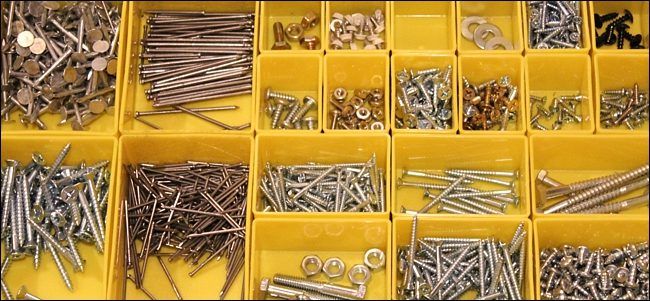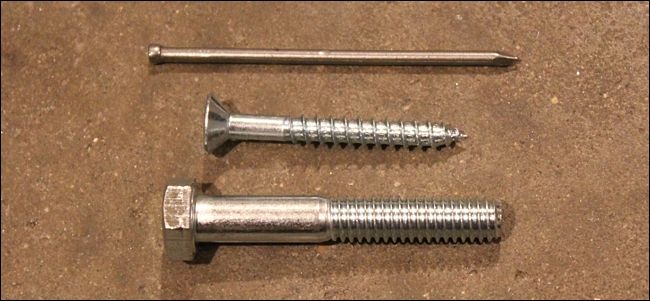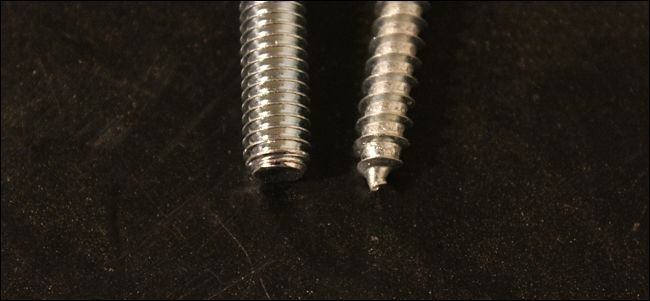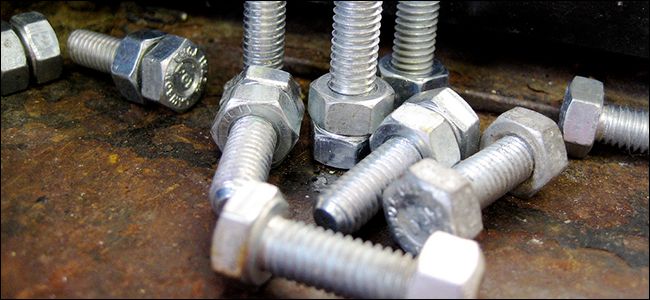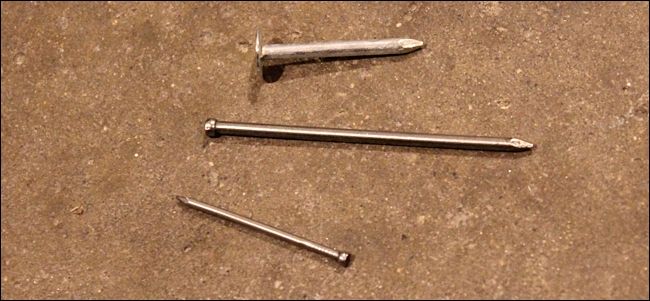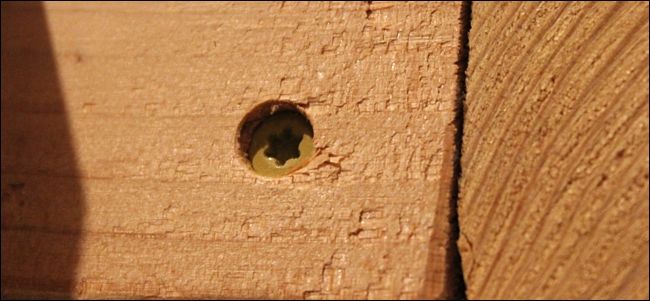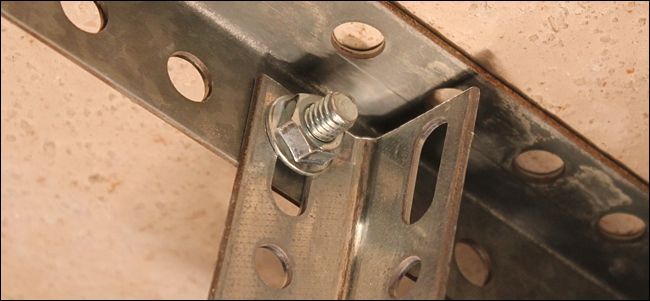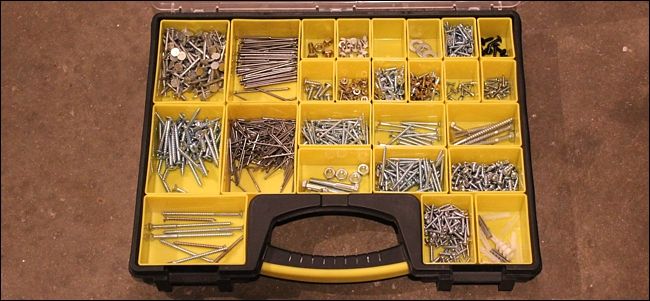Quick Links
There so many different types of fasteners available that most hardware stores usually have an entire aisle dedicated to them. However, we're going to go over the basics between screws, bolts, and nails, and when you should use one over the other in different scenarios.
The Basic Differences
There are literally hundreds of different types of fasteners to choose from, but they all usually boil down to being either a screw, bolt, or nail.
It's pretty easy to tell the difference between a nail and a screw because the shank on a nail is smooth and doesn't have threads. Screws and bolts look somewhat similar, since both have threads.
A good rule of thumb is that most screws have pointy ends, while most bolts have flat ends, although that's not a hard and fast rule since bolts can also have pointy ends and screws can have flat ends.
Screws with pointy ends are meant to be driven into materials that don't already have threaded holes. So these types of screws can pierce into a solid material (like wood) and drive in more easily, while a screw with a flat end is meant to be driven into a pre-tapped hole that has threads matching the screw's own threads.
Screws also normally have some kind of shaped cavity on top of the head (a.k.a. provision) that allows you to drive it into a material using a screwdriver or a power drill. Bolts usually don't have these cavities and instead have heads that are shaped to accept a wrench or socket.
Bolts are also made to accompany a nut of some kind in order to hold something together. In these cases, there's usually not a threaded hole, but rather an unthreaded hole large enough that the bolt can easily slide all the way through.
However, bolts can also be screwed into a threaded hole in order to fasten something down without the need for a nut, like a valve cover bolt that fastens down the valve cover to the rest of a car's engine.
When You Should Use Nails
Nails are mostly used in light construction. Things like roof shingles, door and window trim, and framing are great examples, as the fasteners don't need a whole lot of holding power.
Because of that, nails are also a lot easier and quicker to drive into material, especially if you're using a nail gun that does all of the hard work for you. Plus, they're cheaper than screws.
While nails aren't necessarily stronger than screws, they're at least a bit more forgiving---they can bend back and forth without breaking right away, whereas a screw that's subjected to the same kind of bending force would likely snap.
When You Should Use Screws
If you need a bit more holding power than nails provide, screws are usually the way to go, since the threads can grab onto whatever material you're screwing into. You'll see them a lot in woodworking, as well as light-to-medium construction. Heck, you can also use them all around the house to mount shelves, mirrors and cabinets.
Screws are also the most common type of fastener and they can be used with all sorts of materials, which is why there are so many different types of screws, like deck screws, drywall screws, sheet metal screws, wood screws, and more.
However, while screws do have a lot of holding power, they're not recommended for really heavy-duty construction where the fasteners would be under significant load. This is where bolts come in.
When You Should Use Bolts
It's best to use bolts whenever the fastener will be under any significant amount of weight stress, or any project where you're using large pieces of lumber or other material. So projects like building a porch or fastening a suspended swing under that porch are going to require bolts of some kind in certain locations.
This is because bolts come in much larger sizes than screws do, so they're great for attaching larger pieces of lumber together, as well as being able to handle much more weight if need be. Plus, being able to screw a nut onto the other end of the bolt means that you can tighten down bolts and fasten together materials much more securely than you can with screws. As pictured above, a nut and bolt can squeeze together two parts that you want to connect.
When In Doubt, Trust Your Gut (or Ask for Help)
If you're not sure which type of fastener to use for a project and are worried that screws might not hold up very well, then you're probably right---it might be better to use bolts instead.
However, never be afraid to ask for help if you're really not sure about something, whether it's at the hardware store or a friend that works in construction. They can easily lead you in the right direction and tell you which fasteners would be best for your project.
Image from Joe Jukes/Flickr

